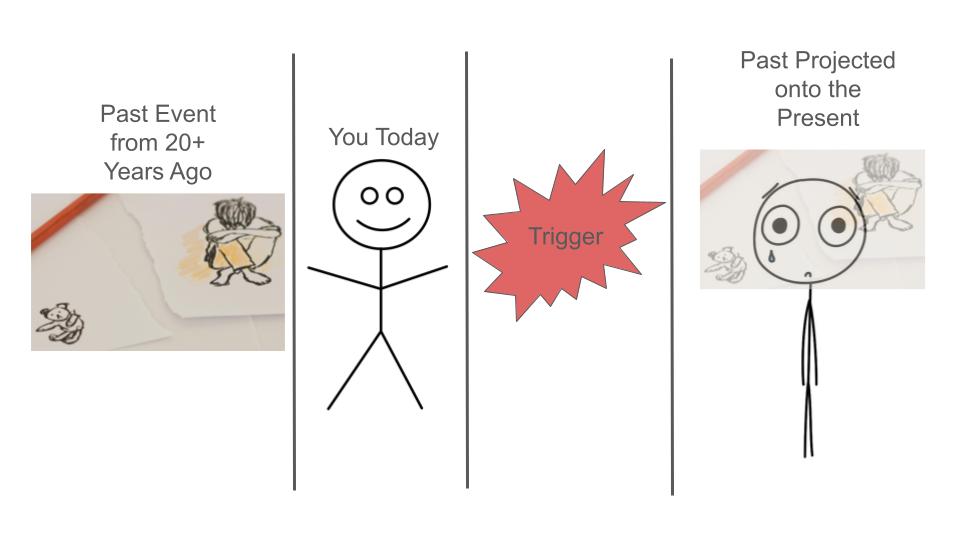|
How does getting "triggered" work?
Trigger Logic: this refers to the the thought pattern related to maintaining the intensity and "flavor" of the trigger. When in the process of a trigger, we can feel like it is of the utmost importance to maintain the triggered state; that to let it go would compromise our integrity, safety, or goal in the moment. The thoughts can say to us that it is impossible to regulate. To even think of regulating can feel threatening, insulting, or shaming. It Just Feels So Real: The reason its hard to "reason" with a trigger is because your body really feels like its in the original past event while your mind does not have the sensation of remembering. So you are actually feeling the past but absolutely cannot distinguish it from the present. In our example, the loss of the keychain object feels like the forced removal of the stuffed animal when you were a little child. The self attack you engage in is the defense you used as a child to deal with the wound created by the misattuned parent. When the stuffed animal was taken away, your little body went into chaos. You didn't understand what was happening and blamed yourself, because that is what little children do to maintain the notion that their caregivers are "good, reliable, and worthy of trust." It is safer for a child to think that they are the problem rather than the adults because they rely on the adults for survival. So, when you are triggered, you essentially "forget" you are an adult and feel like a threatened child, teenager, or some other past disempowered version of yourself. You experience that past version in your body and you feel like that version is you in the here and now, even though it is not, in fact, you currently. Regulation: Its Not So Easy. Just because there is a thought component to trigger logic does not mean that it is easy to "just regulate" in the moment. Regulating take a ton of awareness and practice. People who have been able to practice genuine regulation are lucky, privileged, and hard-working because genuine regulation practices are hard to come by and, at times, hard to learn. Once someone understands how to regulate and their particular needs regarding regulating, the process can become quite simple. The road to simplicity can be a long and harrowing one, however, with many opportunities for illusions, mysteries, and traps along the way. How do I learn to regulate?
How do I know that I am regulating and not dissociating or coping with compartmentalization? In essence, you will be able to assess the objective magnitude of an event in terms of its level of threat towards you and others. You will be able to recognize that most unpleasant events are uncomfortable and inconvenient but are not emergencies or a sign that either you or the world are completely awful. Your emotions will serve as trustworthy messengers rather than threatening energies that totally overwhelm you. You will be able to think and feel at the same time and be able to choose a course of action that is in your and other's best interest.
0 Comments
Leave a Reply. |
Details
AuthorProsopon Therapy Archives
July 2024
Categories |

 RSS Feed
RSS Feed